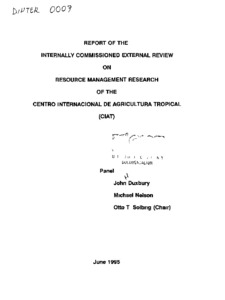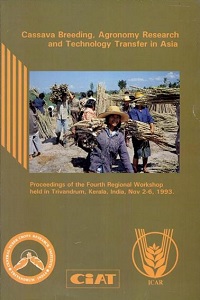Mission
To reduce hunger and poverty, and improve human nutrition in the tropics through research aimed at increasing the eco-efficiency of agriculture.
People
CIAT’s staff includes about 200 scientists. Supported by a wide array of donors, the Center collaborates with hundreds of partners to conduct high-quality research and translate the results into development impact. A Board of Trustees provides oversight of CIAT’s research and financial management.
Values
- Shared organizational ethic
- We respect each other, our partners, and the people who benefit from our work. We act with honesty, integrity, transparency, and environmental responsibility in all of our joint endeavors.
- Learning through partnerships
- We work efficiently and pragmatically together and with partners. Considering our diversity to be a key asset, we adapt readily to change and strive to improve our performance through continuous learning.
- Innovation for impact
- We develop innovative solutions to important challenges in tropical agriculture, resulting in major benefits for the people who support, participate in, and profit from our work.
Members:
Resources
Displaying 646 - 650 of 958Research priorities
Results and achievements
Report of the internally commissioned external review on resource management research of the Centro Internacional de Agricultura Tropical (CIAT)
Regional Workshop Cassava Breeding, Agronomy Research and Technology Transfer in Asia (4, 1993, Trivandrum, Kerala, India). Cassava breeding, agronomy research and technology transfer in Asia : Proceedings
Recent progress in cassava varietal improvement in Vietnam
Cassava is after maize an important subsidiary crop in Vietnam. The amount of production used for human consumption is now only about 10-20 percent, that for animal feed increased to about 30 percent, for industrial processing about 30-40 percent, while about 20 percent is used for other requirements. Although in terms of area Vietnam is among the thirteen largest cassava because cassava is considered a poor farmers' crop, which is generally neglected, bot in research and in the production field.




